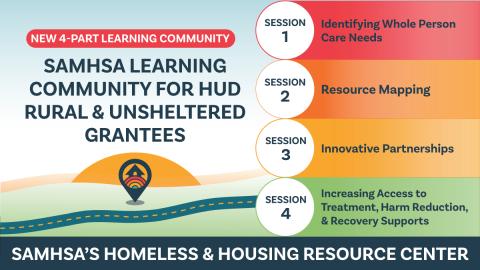Knowledge & Resources
Search and download a library of information and resources for health professionals and housing specialists.
Featured Article

This Learning Community for HUD Rural and Unsheltered grantees will focus on supporting Continuums of Care (CoCs) in understanding and building cross-system partnerships that address the needs of individuals and families impacted by substance use and/or mental disorders among those experiencing unsheltered homelessness and homelessness in rural areas.
Read MoreExplore The Resources
Filter
Clear AllResults
Fact Sheet Treatment, Housing, and Outreach Support for Individuals with Psychotic Disorders
With the appropriate support and treatment, people experiencing homelessness and psychosis can recover to live full and productive lives. This fact sheet provides an overview of psychosis and its treatment options, strategies for outreach and engagement, including tips for de-escalation, and strategies for supporting people with psychotic symptoms in achieving and maintaining housing.
Fact Sheet Low-Barrier Shelter: Policies into Practice
This guide provides information on the core components of low-barrier shelters. It provides examples of key policies, procedures to support those policies, and ideas for navigating common challenges in implementation.
Fact Sheet Boosting the Power of Harm Reduction
This resource outlines strategies to build a coordinated and culturally responsive system of care for people with substance use disorders who are experiencing homelessness.
-
Toolkit Whole-Person Care for People Experiencing Homelessness and Opioid Use Disorder: Toolkit Part 2
This guide focuses on understanding the neurobiology of opioid use disorder (OUD) and the treatment and recovery pathways for OUD. The guide covers best practices for referrals and warm handoffs, as well as assistance in meeting basic needs such as income, food, and mainstream benefits.
Article Learning Community: Trauma-Informed Outreach and Engagement
In this four-part series, attendees will learn the fundamentals of providing Trauma-Informed Care (TIC) from the lens of working to engage and provide services for people with behavioral health needs who are also experiencing homelessness.